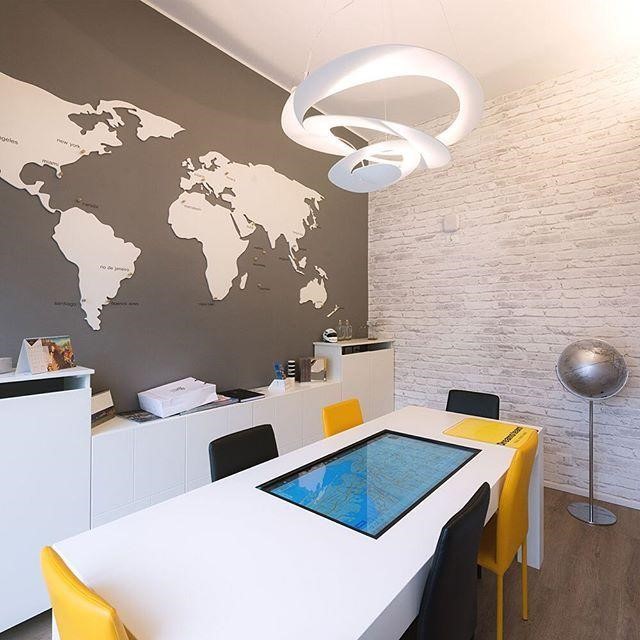Remember struggling with lost luggage, confusing maps, and endless queues? Those travel woes are fading fast, thanks to the advancement of cutting-edge technologies reshaping the travel industry. From secure blockchain payments to personalised AI itineraries, prepare for a personalised and sustainable travel experience like never before.
The travel industry is on the cusp of transformative technological trends that promise to redefine how we explore the world in 2024. As we navigate through these advancements, here are 10 key technology trends that stand out, shaping the future of travel.
Blockchain
Think of it this way: instead of relying on a single, centralised authority, blockchain creates a secure, shared ledger accessible to everyone in the travel ecosystem. This decentralisation ensures tamper-proof security, making fraud activity virtually impossible. No more shady currency exchanges or worries about stolen credit card information – just secure, transparent transactions at every step of your journey.
But the revolution doesn’t stop there. Blockchain.com also streamlines payment processes, eliminating middlemen and their associated fees. It’s like booking a flight directly with the airline, paying instantly and securely without hefty transaction charges. Or paying for local tours and activities without the hassle of currency conversions and hidden fees.
PaaS – Travel Ideas Online
In 2024, as technology transforms the travel industry, Travel Ideas Online (TIO) stands out as a leader. TIO’s products, like the T-Broker Marketplace and VendorHub, simplify travel agents’ jobs using innovative technology. They focus on being easy to use, reliable, and packed with valuable features. With no sign-up fee, one can easily register and get their travel business running.
T-Broker Marketplace empowers travel agents with a vast inventory of travel products and services worldwide. With a user-friendly interface, agents can effortlessly navigate the options, ensuring they can offer their clients the most tailored and competitive travel solutions. This marketplace is not merely a tool.
VendorHub is for travel agents looking to streamline their operations. Managing bookings, tracking expenses, and ensuring a smooth client experience has never been this easy. VendorHub is not just a platform; it’s your backend, simplifying complex tasks even for those less tech-savvy.
Travel Ideas Online is a PaaS. Offering a comprehensive suite of tools to streamline your travel. Simplify inventory exchange with our cutting-edge marketplace and boost customer satisfaction with our eStore platform. Read more about us so that we can help you plan a safe trip.
TIO is a revolutionary platform that is transforming the travel industry for everyone. With TIO, you can:
- Streamline your booking process and save time and money.
- Access a vast inventory of travel products from all over the world.
- Make data-driven decisions with actionable insights.
Visit TIO for more information.
AI’s Personalisation Prowess
(AI) is rushing into a new era of personalised travel experiences, revolutionising how we plan and enjoy our journeys. By leveraging sophisticated algorithms and vast datasets, AI tailors travel recommendations and suggestions to your preferences, interests, and travel style.
- Itineraries crafted just for you: Whether you seek cultural inspiration, adrenaline-pumping adventures, or relaxing getaways, AI analyses your travel habits and desires to curate a unique itinerary that perfectly aligns with your vision.
- Recommendations beyond the mainstream: From hidden culinary gems to off-the-beaten-path attractions, AI experiences that resonate with your specific interests ensure you avoid tourist traps and discover the authentic essence of your chosen destination.
- Dynamic adjustments in real-time: Your travel plans are no longer rigid; AI adapts to evolving circumstances, suggesting alternative activities based on weather, local events, and even your changing moods.
Voice Search and AI Assistants Simplifying Tasks
Voice-activated technology and AI assistants are becoming essential to travel planning. From booking flights to locating local attractions, these innovations simplify tasks, allowing travellers to navigate their journey with voice commands effortlessly.
Sustainable Travel Apps Guiding Conscious Choices
In response to the growing focus on sustainability, travel apps are coming out to guide eco-conscious travellers. These applications provide valuable information on sustainable accommodations, environmentally friendly transportation options, and responsible tourism practices, empowering travellers to make informed choices that align with their values.
Biometric Authentication Enhancing Security
Bid farewell to dull queues and paperwork. Biometric authentication, including facial recognition and fingerprint scanning, is revolutionising airport processes, ensuring a secure travel experience for passengers. This advancement significantly reduces waiting times and overall efficiency in the travel ecosystem.
For example:
For instance, in Malaysia’s airports, facial recognition technology has become a game-changer. Passengers can now breeze through check-in and immigration processes with a simple glance, eliminating the need for physical documents and tedious manual verification. Kuala Lumpur International Airport (KLIA) has been at the forefront of adopting facial recognition, streamlining passenger verification and enhancing overall airport security.
This new tech change makes a big difference in making people wait less, doing things more efficiently, and making travel smoother. In Malaysia, they’re starting to use biometric authentication in airports. This means that in the future, waiting in lines and dealing with lots of paperwork could be things of the past. It’s like opening the door to a future where flying is easier, safer, and more convenient for everyone.
5G Connectivity Revolutionising Communication
The rollout of 5G technology transforms how travellers stay connected on the go. With faster internet speeds, communication becomes seamless, allowing real-time updates, live streaming, and enhanced navigation throughout the journey.
Robotic Customer Service in Hospitality
Integrating robots into the hospitality sector is streamlining customer service. These innovations, from automated check-ins to robotic room service, ensure a smooth, contactless, and efficient travel experience, setting new industry service standards.
Virtual Reality’s Role in Travel Planning
Virtual Reality (VR) reshapes how travellers plan their trips. Virtual tours and experiences enable users to explore destinations remotely, providing a preview that aids in making well-informed travel decisions. This immersive approach enhances the planning phase, allowing users to virtually experience their destination before embarking on the journey.
Smart Luggage with GPS Tracking
Smart luggage equipped with GPS tracking alleviates concerns about lost belongings. This technology ensures travellers can quickly locate their luggage, enhancing peace of mind throughout their journey. The integration of smart features into luggage not only improves convenience but also marks a significant impact.
Looking Beyond
These trends represent just the first wave of a technological revolution transforming the travel industry. As innovation continues to accelerate, even more extraordinary possibilities lie ahead.
As we progress the technological revolution in the travel industry, these 10 trends are set to redefine how we explore the world in 2024. From security measures to immersive experiences, technology is undoubtedly shaping a new era of travel, promising exciting adventures for every traveller. Stay tuned for these innovations and prepare for a journey like never before.
Businesses within the travel sector must adapt and embrace these evolving trends to remain competitive. Early adopters who leverage technology to enhance security, personalise experiences, prioritise sustainability, and offer effortless convenience will capture the hearts and minds of modern travellers.
FAQs
- How does blockchain technology impact financial transactions in the travel industry?
Blockchain technology ensures secure and transparent financial transactions by providing a tamper-resistant and decentralised ledger. This reduces the risk of fraud, fostering trust in monetary exchanges within the travel sector.
- How does AI personalise the travel experience?
A: Artificial Intelligence analyses vast datasets to create tailored itineraries and recommendations, offering travellers a personalised journey. This enhances user satisfaction and builds brand loyalty through a more customised travel experience.
- How does Augmented Reality (AR) improve navigation during travel?
A: AR provides real-time information and directions through smartphones, simplifying navigation in new destinations. This technology enhances the efficiency and seamlessness of exploration, contributing to an improved travel experience.
- How are voice-activated technology and AI assistants changing travel planning?
A: Voice-activated technology and AI assistants streamline travel tasks, from booking flights to finding local attractions. These innovations simplify planning, allowing travellers to navigate their journeys effortlessly using voice commands.
- What role do sustainable travel apps play in guiding conscious choices?
A: Sustainable travel apps offer information on eco-friendly accommodations, transportation, and responsible tourism practices. Travellers can make informed choices that align with their values, contributing to a more sustainable and responsible travel industry.
- How does biometric authentication enhance security in travel?
A: Biometric authentication, such as facial recognition and fingerprint scanning, revolutionises airport processes. This technology ensures a secure and seamless travel experience by reducing waiting times and enhancing overall efficiency.
- What impact does 5G connectivity have on communication during travel?
A: The rollout of 5G technology transforms communication by providing faster internet speeds. Travellers can enjoy real-time updates, live streaming, and enhanced navigation, ensuring a connected and efficient journey.
- How do robots contribute to customer service in the hospitality sector?
A: Robots in the hospitality sector automate check-ins, room service, and other tasks, ensuring a smooth, contactless, and efficient customer service experience. This marks a significant advancement in service standards within the travel industry.
- How does Virtual Reality (VR) impact travel planning?
A: It allows users to explore destinations remotely. This immersive approach aids in making well-informed travel decisions by providing a preview of the destination.
- What benefits do smart luggage with GPS tracking offer to travellers?
A: It benefits them by enabling travellers to easily locate their luggage. This technology enhances convenience and peace of mind throughout the journey, marking a significant advancement in travel technology.


